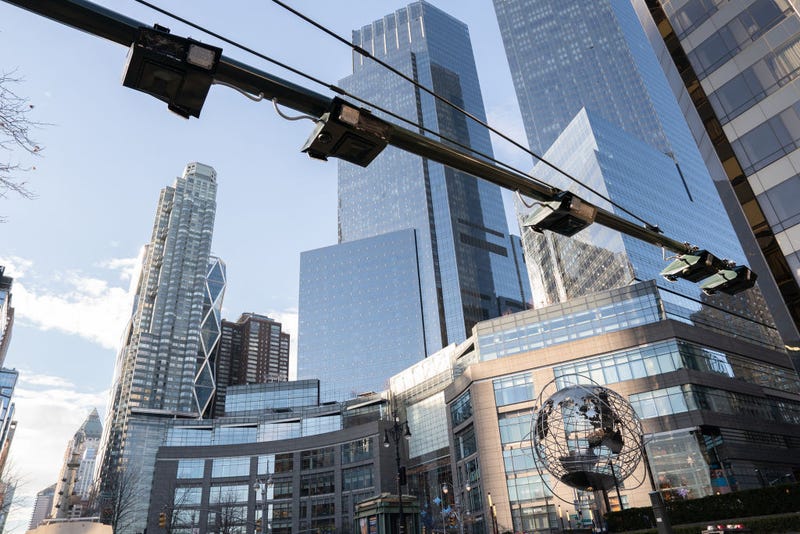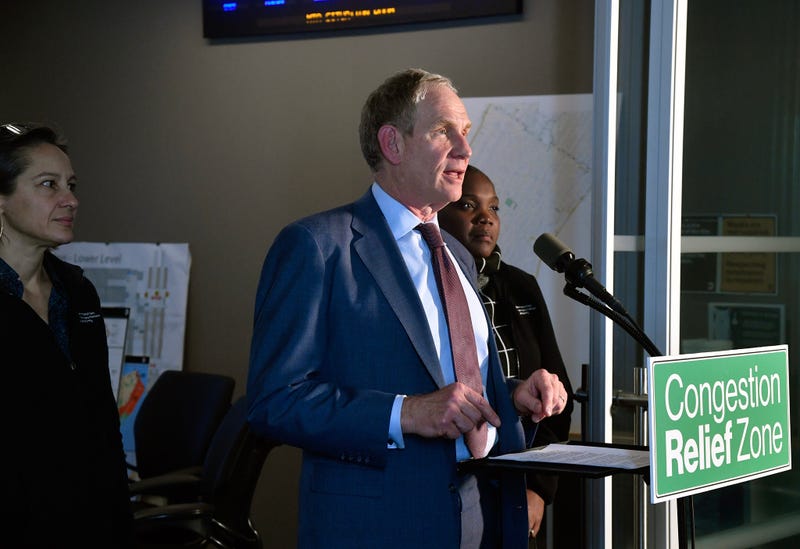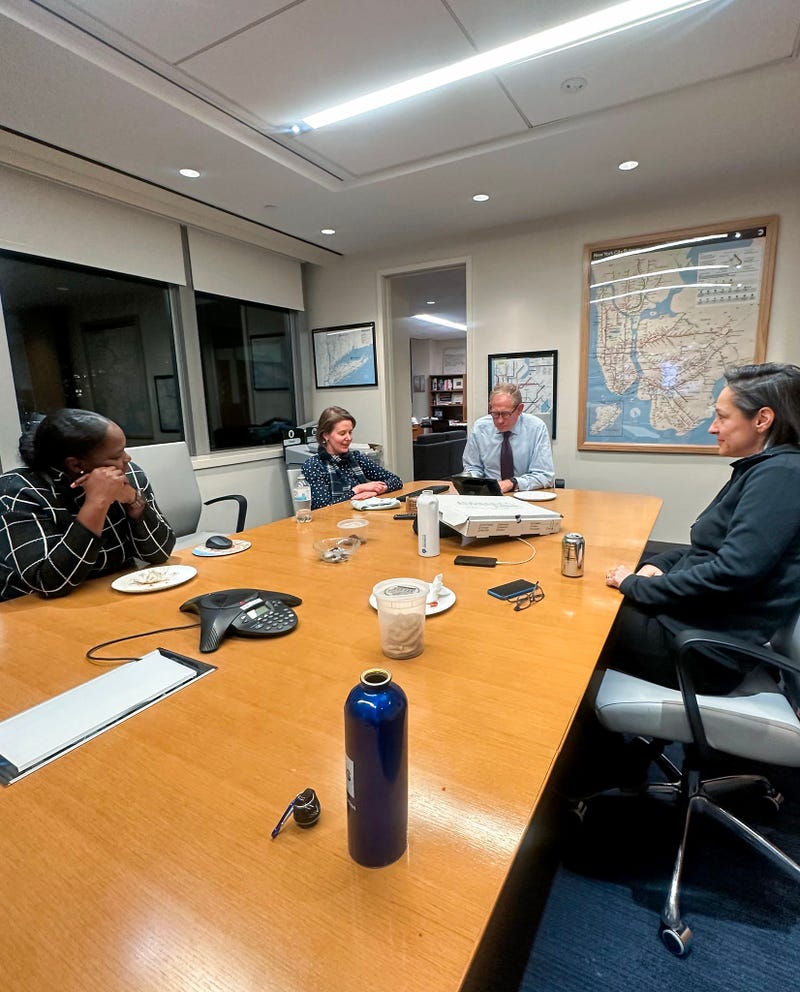
NEW YORK (1010 WINS) — New York’s controversial congestion pricing plan will begin on Sunday after a federal judge denied New Jersey’s request for a temporary restraining order on Friday.
The toll will cost most drivers $9 when they drive into Manhattan below 60th Street during peak hours, down 40% from the plan’s initial $15 toll that was intended to go into place last June.
“It is not a $15 toll for people coming into the Central Business District. It is not $23 as it could have been,” said Gov. Kathy Hochul, who temporarily paused the tolling plan last year, halting its implementation.
MTA Chair and CEO Janno Lieber held a press conference on Friday night following Judge Leo Gordon’s decision and stated that he was proud that the action is moving forward, pointing to worldwide successes of similar plans, like the congestion charge in London.
“People started to believe that government is paralyzed, that government can’t get anything accomplished,” Lieber said. “But I am proud that New York is going to implement a strategy that has been successful in other great world cities that have struggled with traffic.”

Lieber reiterated popular talking points in favor of the tolling plan, stating that it will protect the interests of New Yorkers from a health standpoint, decrease car crashes that injure pedestrians or cyclists and generate money “to benefit the 90% of New Yorkers who do take transit.”
According to the MTA chair, the plan helps everyone, including drivers.
“The point is to make the city better for everybody,” he said. “We need to make it easier for people who choose to drive or who have to drive to get around the city.”
After the ruling, New Jersey Attorney Randy Mastro said that the state “respectfully [disagrees] with the trial court’s decision,” and confirmed that it will be seeking emergency relief from the Third Circuit Court of Appeals in Philadelphia.
“The judge found that the Federal Highway Administration acted arbitrarily and capriciously in approving the MTA’s plan and that insufficient environmental mitigation commitments were made to New Jersey,” Mastro said, citing Gordon’s decision on the state’s lawsuit this week , which included a stipulation that the FHWA weigh in on some environmental aspects like air quality.
“We feel the decision reflected the importance of mitigation for New Jersey communities that are going to be significantly adversely affected by congestion pricing, that there is a need for a pause here,” Mastro said.

The peak toll rate will apply on weekdays from 5 a.m. to 9 p.m., and on weekends from 9 a.m. to 9 p.m., with a 75% reduction overnight, according to the MTA.
The $9 toll applies to small commercial vehicles—including sedans, SUVs, pickup trucks and small vans—paying with a valid E-ZPass. Tolls by Mail bills will be more expensive.
During peak hours motorcycles will pay $4.50; small single-unit trucks and some buses will pay a toll of $14.40; and multi-unit trucks and tour buses will be charged $21.60. Some eligible trucks and buses are exempt from the toll.
A discount plan is available for low-income drivers, and exemptions exist for those with disabilities or organizations transporting people with disabilities, emergency vehicles and specialized government-owned vehicles.
Congestion pricing will increase to its original $15 toll over the next several years, reaching $12 in 2028 and $15 in 2031.
“The time for debating and lawsuits is over,” Lieber said. “It’s time to get to work making this new initiative a success for New York. And I think we’re ready.”
Details about congestion pricing, exemptions and discounts are available on the MTA website.
